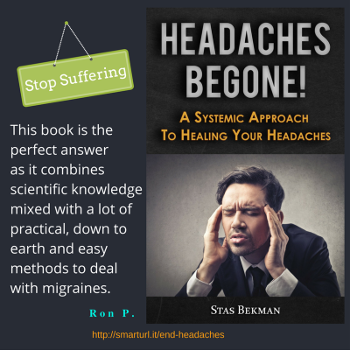Hyung Bo And Nahl Bo; Or, The Swallow-King's Rewards
Description
This section is from the book "Korean Tales", by H. N. Allen. Also available from Amazon: Korean Tales.
Hyung Bo And Nahl Bo; Or, The Swallow-King's Rewards
I
In the province of Chullado, in Southern Korea, lived two brothers. One was very rich, the other very poor. For in dividing the inheritance, the elder brother, instead of taking the father's place, and providing for the younger children, kept the whole property to himself, allowing his younger brother nothing at all, and reducing him to a condition of abject misery. Both men were married. Nahl Bo, the elder, had many concubines, in addition to his wife, but had no children; while Hyuug Bo had but one wife and several children. The former's wives were continually quarrelling; the latter lived in contentment and peace with his wife, each endeavoring to help the other bear the heavy burdens circumstances had placed upon them. The elder brother lived in a fine, large compound, with warm, comfortable houses; the younger had built himself a hut of broom straw, the thatch of which was so poor that when it rained they were deluged inside, upon the earthern floor. The room was so small, too, that when Hyung Bo stretched out his legs in his sleep his feet were apt to be thrust through the wall. They had no kang, and had to sleep upon the cold dirt floor, where insects were so abundant as to often succeed in driving the sleepers out of doors.
They had no money for the comforts of life, and were glad when a stroke of good fortune enabled them to obtain the necessities. Hyung Bo worked whenever he could get work, but rainy days and dull seasons were a heavy strain upon them. The wife did plain sewing, and together they made straw sandals for the peasants and vendors. At fair time the sandal business was good, but then came a time when no more food was left in the house, the string for making the sandals was all used up, and they had no money for a new supply. Then the children cried to their mother for food, till her heart ached for them, and the father wandered off in a last attempt to get something to keep the breath of life in his family.
Not a kernel of rice was left, A poor rat which had cast in his lot with this kind family, became desperate when, night after night, he chased around the little house without being able to find the semblance of a meal. Becoming desperate, he vented his despair in such loud squealing that he wakened the neighbors, who declared that the mouse said his legs were worn off running about in a vain search for a grain of rice with which to appease his hunger. The famine became so serious in the little home, that at last the mother commanded her son to go to his uncle and tell him plainly how distressed they were, and ask him to loan them enough rice to subsist on till they could get work, when they would surely return the loan.
The boy did not want to go. His uncle would never recognize him on the street, and he was afraid to go inside his house lest he should whip him. But the mother commanded him to go, and he obeyed. Outside his uncle's house were many cows, well fed and valuable. In pens he saw great fat pigs in abundance, and fowls were everywhere in great numbers. Many dogs also were there, and they ran barking at him, tearing his clothes with their teeth and frightening him so much that he was tempted to run; but speaking kindly to them, they quieted down, and one dog came and licked Ins hand as if ashamed of the conduct of the others. A female servant ordered him away, but he told her he was her master's nephew, and wanted to see him; whereupon she smiled but let Mm pass into an inner court, where he found his uncle sitting on the little veranda under the broad, overhanging eaves.
The man gruffly demanded, "who are you?"
"I am your brother's son," he said. "We are starving at our house, and have had no food for three days. My father is away now trying to find work, but we are very hungry, and only ask you to loan us a little rice till we can get some to return you."
The uncle's eyes drew down to a point, his brows contracted, and he seemed very angry, so that the nephew began looking for an easy way of escape in case he should come at him. At last he looked up and said: "My rice is locked up, and I have ordered the granaries not to be opened. The flour is sealed and cannot be broken into. If I give you some cold victuals, the dogs will bark at you and try to take it from you. If I give you the leavings of the wine-press, the pigs will be jealous and squeal at you. If I give you bran, the cows and fowls will take after you. Get out, and let me never see you here again." So saying, he caught the poor boy by the collar and threw him into the outer court, hurting him, and causing him to ery bitterly with pain of body and distress of mind.
At home the poor mother sat jogging her babe in her weak arms, and appeasing the other children by saying that brother had gone to their uncle for food, and soon the pot would be boiling and they would all be satisfied. When, hearing a foot-fall, all scrambled eagerly to the door, only to see the empty-handed, red-eyed boy coming along, trying manfully to look cheerful.
"Did your uncle whip you?" asked the mother, more eager for the safety of her son, than to have her own crying want allayed.
"No," stammered the brave boy. "He had gone to the capital on business," said he, hoping to thus prevent further questioning, on so troublesome a subject.
"What shall I do"? queried the poor woman, amidst the crying and moaning of her children. There was nothing to do but starve, it seemed. However, she thought of her own straw shoes, which were scarcely used, and these she sent to the market, where they brought three cash (3/15 of a cent). This pittance was invested equally in rice, beans, and vegetables; eating which they were relieved for the present, and with full stomachs the little ones fell to playing happily once more, but the poor mother was full of anxiety for the morrow.
Their fortune had turned, however, with their new lease of life, for the father returned with a bale of faggots he had gathered on the mountains, and with the proceeds of these the shoes were redeemed and more food was purchased. Bright and early then next morning both parents went forth in search of work. The wife secured employment winnowing rice. The husband overtook a boy bearing a pack, but his back was so blistered, he could with difficulty cany his burden. Hyung Bo adjusted the saddle of the pack frame to his own back, and carried it for the boy, who, at their arrival at his destination in the evening, gave his helper some cash, in addition to his lodging and meals. During the night, however, a gentleman wished to send a letter by rapid dispatch to a distant place, and Hyung Bo was paid well for carrying it.
Continue to:




